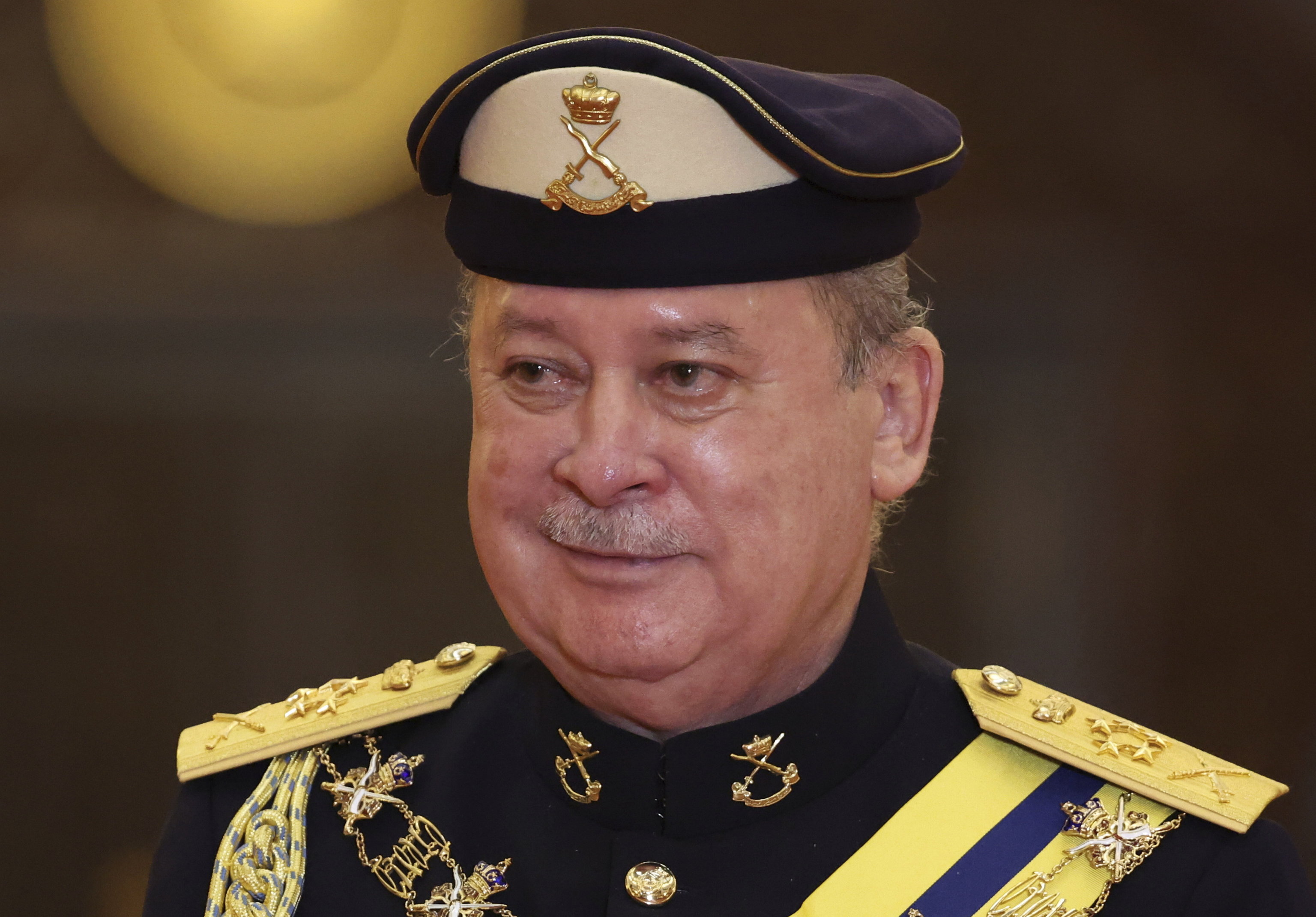The new King of Malaysia, the 17th in this Southeast Asian federation, was enthroned this Saturday in a grand ceremony filled with symbolism and the preservation of traditions at the National Palace (Istana Negara) in Kuala Lumpur, the official residence of the Head of State. Over 700 guests, including all the nation's sultans -each ruling their own sultanate-, top political authorities, and foreign guests like the Sultan of Brunei and the King of Bahrain, witnessed the swearing-in of Ibrahim Iskandar of Johor as the 17th Yang di-Pertuan Agong -a title equivalent to king- who solemnly pledged to "lead the country justly and equitably."
Ibrahim of Johor was proclaimed sovereign on January 31, but, following tradition -similar to what happens in other countries closer to us like the United Kingdom-, the proclamation ceremony, or as it is called in Malaysia, the installation of the king on the throne, always takes place several months later.
We are facing the only rotating elective monarchy in the world. The kings hold the head of state position for non-extendable periods of five years, after being elected to the position in a vote in which the nine sultans of Malaysia -a confederation of 13 states and three federal territories, with over 30 million inhabitants- participate.
The installation events of the Yang di-Pertuan Agong, the most important national event in Malaysia, have taken place throughout the week, with Kuala Lumpur adorned for the occasion. For example, on Friday, special sermons dedicated to the importance of the royal figure as a guide for the people and the value of the monarchy for the nation's prosperity were delivered in mosques. However, the most spectacular festivities take place on Saturday, focused on the National Palace.
It is worth noting that the ceremonial rites and traditions have remained unchanged for almost seven decades, both in terms of institutional procedures and the attire and insignias used. All the festivities are imbued with Malay culture and grandeur.
Sultan Ibrahim (65 years old) wore the official ceremonial attire embroidered in black and gold, known as muskat, not forgetting the tengkolok -a traditional headgear worn by Malay men- and the short dagger symbolizing his power. Alongside him, his wife, Queen Raja Zarith Sofiah, dressed in a baju kurung made of gold threads, splendidly wore the Gandik Diraja, the tiara of the Malaysian queens, crafted by the historic London jeweler Garrard in 1957, after the independence of the sultanates from the British Empire. It is made of platinum and diamonds, with beautiful motifs of a crescent moon and a star in the center.
The couple entered the throne room of Istana Negara at 10:20 a.m. (local time). The monarchs were flanked by bearers of the royal insignias (such as the mace of the universe and the mace of religion, symbolizing the greatness of the Yang di-Pertuan Agong), to the rhythm of the nafiri, an instrument similar to a trumpet, played by members of the Armed Forces.
With the kings already seated on their thrones, the Grand Chamberlain, Datuk Azuan Effendy Zairakithnaini, approached the monarch to seek his consent to begin the ceremony. Subsequently, he presented a luxurious copy of the Quran and the rest of the insignias symbolizing royal authority, as well as the proclamation letter.
Next, the installation oath was administered by the Prime Minister of Malaysia, Anwar Ibrahim. It was then that the king kissed a copy of the Quran to mark the beginning of his reign.
"God willing, I will fulfill my duties with loyalty and honesty and govern with justice," Sultan Ibrahim said in his speech. He also urged Anwar's government to intensify efforts to improve the living conditions of the population and promote the nation's development.
The Grand Chamberlain then addressed the room for everyone to proclaim loudly "Daulat Tuanku (Long Live the King)", three times.
Ibrahim Iskandar is the sovereign of Johor, one of the most prosperous states in the country. He is well known for being one of the wealthiest monarchs globally -his personal fortune exceeds 750 million euros, according to Forbes- and also one of the most eccentric -the royal fleet in his sultanate has over 300 vehicles, just one example of his extravagances. Beyond that, the new king has been an especially influential figure in national politics for years, never hesitating to make high-voltage statements directed at the ruling elite that at least go beyond the exquisite neutrality expected of monarchs in parliamentary democracies like the case at hand.
The festivities for the proclamation of the new king will conclude on Saturday night with a royal banquet for all guests.
Although the King of Malaysia is primarily a ceremonial figure, like any of his counterparts in parliamentary monarchies, he has significant constitutional functions. In addition to overseeing the most important political appointments in the federation, the king acts as the official head of Islam in the predominantly Muslim country and as the commander-in-chief of its armed forces.
Before being proclaimed as the new king, the sultan was very clear in an interview with the Singapore Straits Times that he did not want to spend five years on the throne as a "puppet king", but rather he would focus on combating corruption and deepening unity in the country. In this regard, he has already demonstrated his influence in recent episodes such as the crisis over the sale of socks with the word Allah printed on them.
